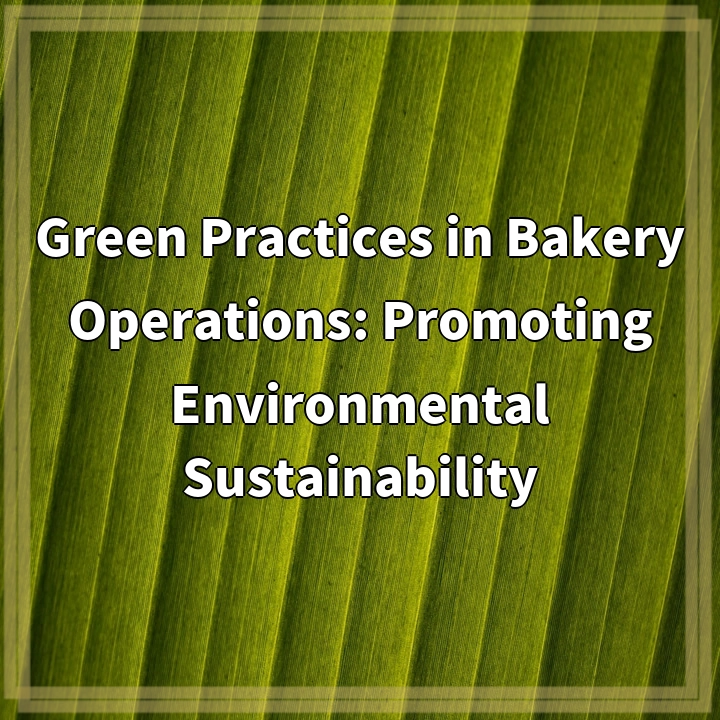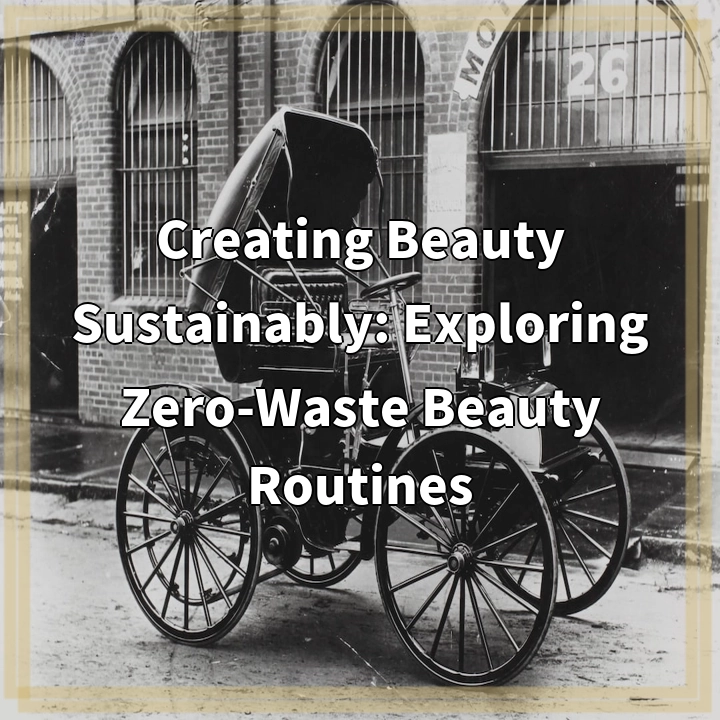
What it is:
Green Practices in Bakery Operations refer to the implementation of sustainable and eco-friendly techniques and strategies within the bakery industry. The aim is to reduce the environmental impact of bakery operations by minimizing waste, conserving resources, and adopting responsible practices throughout the value chain.
Real-World Problems:
As with any industry, bakery operations face several environmental challenges that need to be addressed. Some of the real-world problems associated with bakery operations include:
1. Food Waste:
Bakeries often generate a significant amount of food waste, including unsold products, trimmings, and expired or damaged goods. This contributes to landfill waste and greenhouse gas emissions. Implementing effective waste management systems and finding creative ways to repurpose or donate excess food can help mitigate this issue.
2. Energy Consumption:
Bakery operations consume a considerable amount of energy, mainly for baking and cooling processes. This reliance on energy from non-renewable sources contributes to carbon emissions and environmental degradation. Implementing energy-efficient technologies, optimizing production processes, and investing in renewable energy sources can help reduce energy consumption and promote sustainability.
3. Packaging Waste:
Bakery products are often packaged in single-use materials, such as plastic bags or Styrofoam containers. This leads to a significant amount of packaging waste that ends up in landfills or as litter in ecosystems. Transitioning to sustainable packaging options, such as biodegradable or compostable materials, can minimize this problem and promote a circular economy.
4. Water Usage:
The bakery industry relies heavily on water for its operations, from dough preparation to equipment cleaning. Excessive water usage can strain local water resources and contribute to water scarcity. Implementing water-efficient practices, such as recycling and reusing water, installing water-saving equipment, and raising awareness among employees, can help conserve water and reduce the industry’s impact on local ecosystems.

Solutions:
Addressing the real-world problems associated with bakery operations requires the implementation of sustainable solutions. Here are some strategies that can promote environmental sustainability within the bakery industry:
1. Food Waste Management:
Implementing effective food waste management systems, such as composting or partnering with local food banks, can help reduce the amount of bakery waste that ends up in landfills. Additionally, optimizing production processes to match demand can help minimize overproduction and food waste.
2. Energy Efficiency:
Investing in energy-efficient equipment, such as ovens, refrigeration units, and lighting systems, can significantly reduce energy consumption in bakery operations. Implementing automated controls, optimizing production schedules, and training staff on energy-saving practices can further enhance energy efficiency.
3. Sustainable Packaging:
Transitioning to eco-friendly packaging options, such as biodegradable or compostable materials, can help minimize packaging waste. Implementing source reduction strategies, such as using minimal packaging or encouraging customers to bring their own containers, can also contribute to reducing environmental impact.
4. Water Conservation:
Implementing water-saving technologies, such as low-flow faucets and sensors, can help reduce water usage in bakery operations. Proper maintenance of equipment to prevent leaks, recycling and reusing water where possible, and raising awareness among employees about water conservation can also contribute to sustainable water practices.















